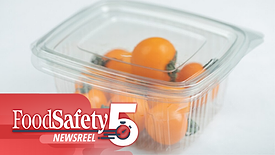Home » Keywords: » EU
Items Tagged with 'EU'
ARTICLES
Enhancing Food Supply Chain Resilience through Digital Innovation: An In-Depth Look at the SecureFood Project
The SecureFood project aims to build a food system that is capable of withstanding disruptions while also meeting the long-term needs of the population.
February 14, 2025
Never miss the latest news and trends driving the food safety industry
eNewsletter | Website | eMagazine
JOIN TODAY!Copyright ©2025. All Rights Reserved BNP Media.
Design, CMS, Hosting & Web Development :: ePublishing











